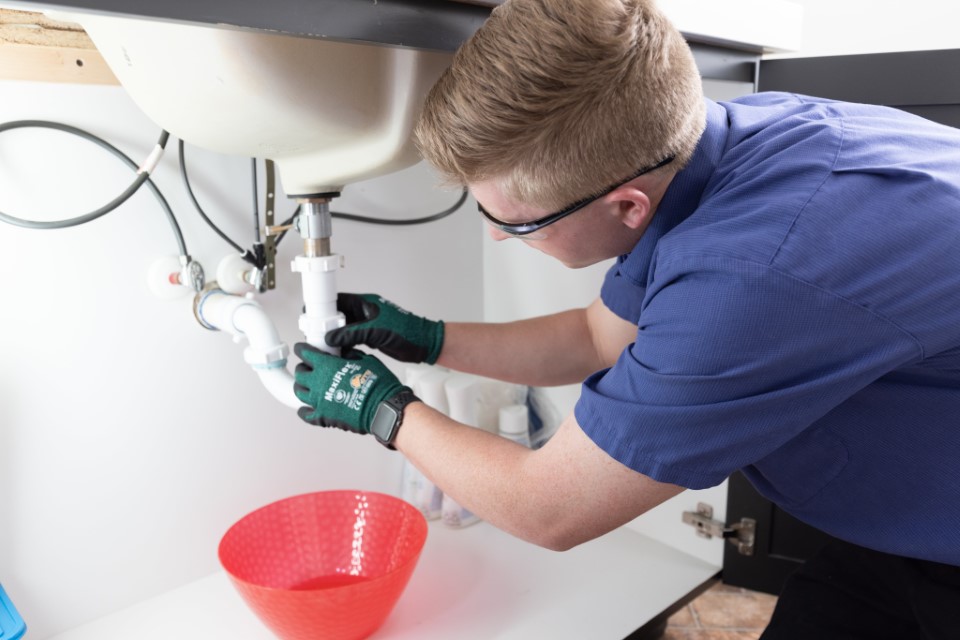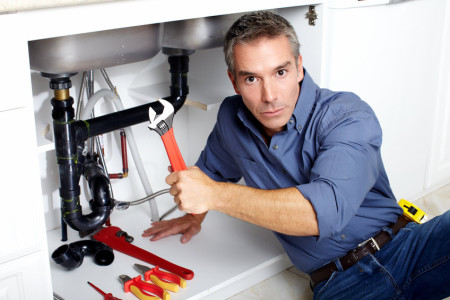How to Handle Emergency Plumbing Issues Before Professional Help Arrives
How to Handle Emergency Plumbing Issues Before Professional Help Arrives
Blog Article
Nearly everybody is bound to have their own unique idea when it comes to Plumbing Emergencies: Tips on What To Do Before.

Pipes emergencies can strike at any time, causing anxiety and possible damage to your home. Whether it's a burst pipe, a clogged drain, or a leaky faucet, understanding how to handle the scenario till a specialist plumbing professional gets here can conserve you from further complications. This article supplies necessary emergency plumbing ideas to aid you alleviate damages and gain back control throughout a plumbing dilemma.
Turn Off the Supply Of Water
The first step in any kind of pipes emergency situation is to turn off the supply of water. For localized issues, such as a dripping tap or commode, shut off the valve near the fixture. When it comes to a significant leak or burst pipeline, situate your home's main water shut-off valve and transform it off promptly. Understanding the location of these shutoffs ahead of time can save valuable time during an emergency.
Address Little Leakages with Momentary Fixes
Small leakages can swiftly end up being considerable problems if left unattended. Make use of these short-lived repairs till professional aid arrives:
While these repairs aren't permanent, they can aid lessen water loss and damage.
Unclog Drains Securely
A stopped up drain can be a frustrating and unpleasant issue. Below's how to tackle it:
If these techniques do not work, prevent making use of excessive force, as it might worsen the obstruction.
Manage Overflowing Toilets
An overflowing bathroom can create immediate turmoil. Below's what you should do:
Shut Off Your Water Heater
In certain emergencies, such as a burst pipe, it's smart to shut down your hot water heater. This protects against getting too hot or damages to the system when water quits moving. Switch off the power supply to the hot water heater (electrical or gas) and allow it cool to stay clear of possible threats.
Momentarily Quit a Ruptured Pipeline
A ruptured pipeline can cause significant water damage in mins. To alleviate the problem:
Call a specialist plumbing professional right away to deal with the problem permanently.
Take Care Of Frozen Piping Very Carefully
In chillier climates, frozen pipelines are a typical emergency. If you suspect an icy pipeline:
Stop Additional Damage
Taking fast activity to lessen damage can save you money and time in the future. Right here's how:
. Have an Emergency Pipes Set
Prepare a standard plumbing emergency situation kit to take care of minor concerns effectively. Your set needs to include:
Having these tools accessible can make a considerable distinction in your capability to manage emergency situations.
Know When to Call a Professional.
While quick fixes can aid briefly, particular plumbing concerns need immediate expert attention. Call a plumbing professional if:.
Immediately contacting an expert ensures the problem is settled correctly and stops more problems.
Final thought.
Pipes emergencies can be overwhelming, however with the right understanding and devices, you can take care of the situation successfully till help shows up. By switching off the water supply, dealing with small leaks, and utilizing short-lived fixes, you can minimize damage and maintain your home safe. Keep in mind, these ideas are momentary remedies; always speak with an accredited plumber to take care of the root cause of the problem. Preparation and quick reasoning are your finest allies in any kind of pipes emergency situation.
8 Helpful Tips for Managing Plumbing Emergencies at Home
If your plumbing system hasn’t failed once, wait for it because almost everyone has a story to tell. Sometimes, it could be simple emergencies such as a leaking pipe, a blocked cistern, or even a big burst pipe. In situations like this, you need to have some handy tips to save you some money and from possible damages.
Take care of minor issues early.
Sometimes, you could have avoided an emergency by taking proactive measures while it was still early. Some major plumbing emergencies can be a result of an ignored minor issue. We recommend that you have items like plumbing tapes and other related items. A plumbing tape can allow you to manage minor leaks before the plumber arrives.
Cut off the water supply.
This tip is essential in almost any type of leakage problem. For problems like minor leakages in the toilet or kitchen, turn off the supply that takes water to the affected pipes. If the leakage is a major pipe, you must shut off the supply valve to the entire building. This will help you avoid flooding your home and neighbors if you share a flat.
Know your plumbing system
Folks typically move into a new apartment without understanding the water supply around the building. This can prove disastrous if a water emergency arises and the plumber is far away. The previous tip will prove useless if you don’t practice this one. More importantly, know where your water shut-off valve is located – you’ll need that knowledge to prevent potential home floods.
Have some common handy tools
There are lots of plumbing emergencies that you can handle without hiring a plumber. That’s why you must keep some tools available always. Some tools that you can use to fix simple plumbing emergencies easily include plumbing tapes, screwdrivers, thread seal tapes, plungers, pliers, tape measures, and rubber gloves.
Insulate your pipes from cold
You’ll save yourself from many plumbing expenses if you protect your water pipes from the cold. This is because of the harmful effects that cold weather can have on your pipes. During winter, your pipes can burst from being overly expected to freezing temperatures. So, make sure insulators are there to keep the pipes working correctly.
Avoid practices that will clog your toilet.
Many people indulge in practices that can damage the plumbing system of the entire building. One of these is when they use their toilet to dispose-off garbage. They flush all kinds of things, such as paper towels, bandages, hairs, female sanitary products, etc., down the toilet. This will block your toilet in the long run, incurring unnecessary expenditures. Dump such waste in the trash instead.
Check your dials regularly.
Sometimes, there could be leakages in your home without noticing them in time. So, constantly monitor your water meter dial. If the dial is reading when there is nobody using water, this is an indicator that there is leaking. Check for leaks immediately. Call a plumber as soon as possible if you can’t find any.
https://www.constructionplacements.com/8-helpful-tips-for-managing-plumbing-emergencies-at-home/

I ran across that piece on Plumbing Emergencies: Tips on What To Do Before while doing a lookup on the internet. Do you know about someone else who is enthusiastic about the subject? Take a moment to share it. Thanks so much for your time invested reading it.
Call Today Report this page